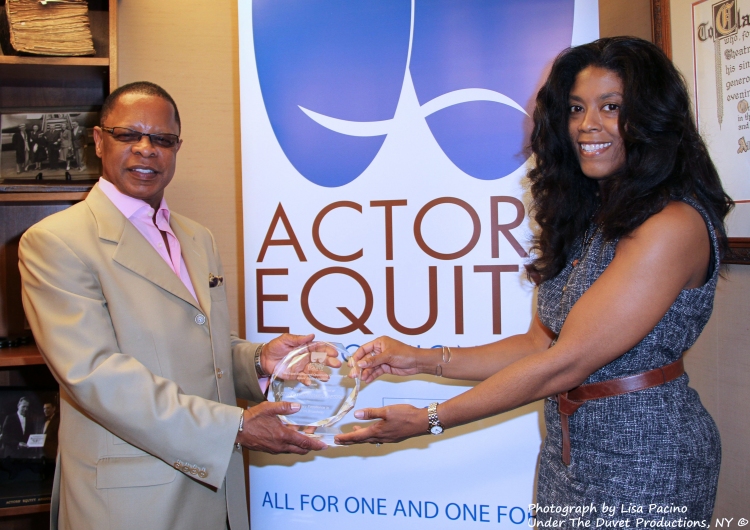
Good Morning POU!
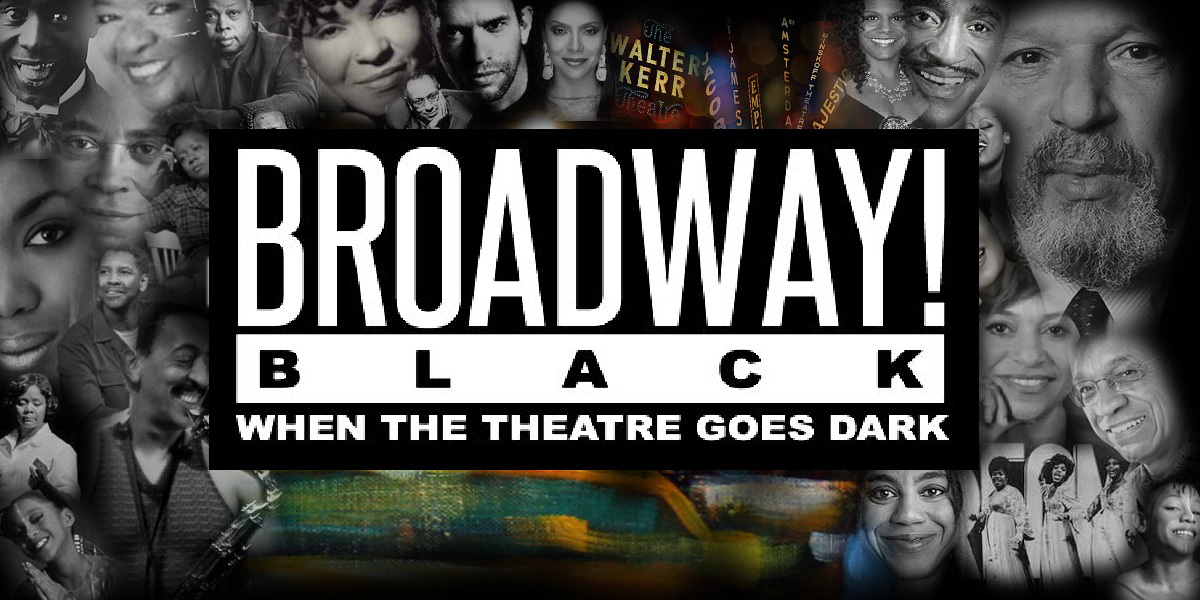
I must say this week’s topic was an eye-opener for me. Diversity on the stage does NOT mean diversity behind it. I couldn’t find one prominent Sound Designer at all. It was a bit disheartening to find playbill after playbill with an all-black cast, just to get to the creative team portion of the program and for the most part, it was usually all white men. For many of these fields, I wonder how many people of color even think about this type of opportunity or if we only concentrate on “being out front.” There are many college programs specifically for these fields, but you will be hard pressed to find more than 2 or 3 enrolled at any given time on one campus. Hopefully the numbers will begin to increase with more awareness about these career paths.
Today’s feature is Broadway’s only full-time Black Producers.
Steven Byrd and Alia Jones-Harvey

Many productions in the recent string of Broadway hits featuring predominately African-American casts have come to life through the work of Alia Jones-Harvey and Stephen C. Byrd. Working as partners for their Front Row Productions firm, they have co-produced celebrated pieces such as The Trip to Bountiful — which helped celebrated actress Cicely Tyson earn her first Tony Award in her decades-long career.
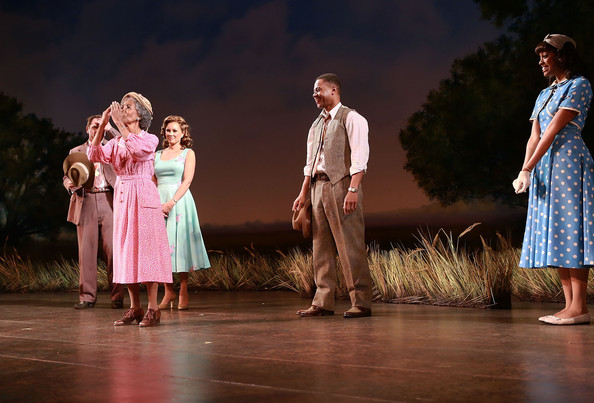
When Jones-Harvey and Byrd produced an all-black version of the Tennessee Williams classic Cat on a Hot Tin Roof in 2008, it was a runaway success. The production starred Terrence Howard, Phylicia Rashad, Anika Noni Rose and James Earl Jones — and garnered over $14 million in sales. This phenomenon whetted audiences’ appetite for more, leading to numerous revivals of black plays, such as Bountiful, in addition to colorblind casting for other recent shows not produced by Harvey and Byrd, but likely inspired by them.

As Broadway’s only African American lead producers – the person chiefly responsible for raising money, overseeing the business side of a show, choosing the director, and settling with the director on a cast and creative team, Front Row Productions, is dedicated to bringing A-list African American performers to the stage in roles almost never available to them.
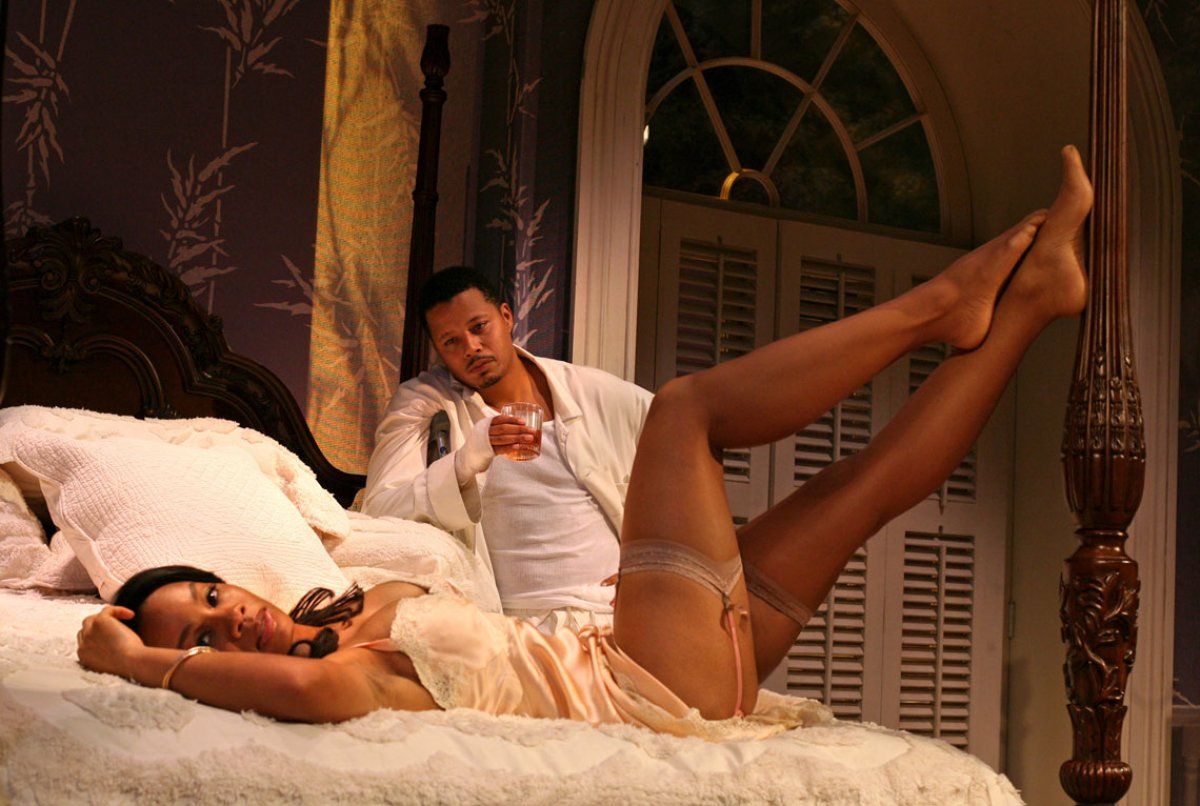
Byrd first created Front Row Productions and bought on Alia M. Jones, whom he mentored when she was a business student at New York University with a background in engineering and math. Jones is also increasingly visible in the inner core of producers who move and shake shows onto Broadway’s 40 stages.
Byrd and Jones are not your typical Broadway producers; both have backgrounds in the corporate sector. Before venturing to Broadway, Byrd, who worked 13 years to bring Cat to the stage, was an investment banker at Goldman Sachs, specializing in mergers and acquisitions. He’s currently a principal and co-founder of StoneHedge Capital Inc., a private equity firm. Jones, like Byrd, has an MBA, and serves as a vice president at Front Row. She is also a principal in AMU Services, a business development consulting firm, and she worked in interactive marketing at Proctor & Gamble.
With demonstrated business acumen, Byrd and Jones are the types of producers in whom investors, particularly those new to the theater world, might find some level of comfort in spite of the inherent risks such investments present.

“I always say there’s a group between Tyler Perry fans and August Wilson fans that hasn’t been tapped,” Mr. Byrd observed in an interview following a “bagels and beignets” press conference to introduce the “Streetcar” stars. “That audience has been coming out to musicals, whether it’s ‘The Wiz’ or ‘The Color Purple.’ But for serious plays they haven’t seen people on stage who look like them and who they can relate to. I don’t think a lot of agencies know how to market to this group. You have to bring the cast to churches. People like that touchy-feely stuff. You have to participate in community events and programs.”
“He knows how to find audiences,” said James Earl Jones who portrayed Big Daddy in “Cat.” “I didn’t know there were that many black theatergoers in New York and London. He went to churches and military bases and comedy clubs and somehow got them to come. I think he must have promised them they’d see Terrence Howard with his shirt off.”
In this way, they have helped a new generation of theater-goers enjoy black stories and African-American actors as universally powerful.
“It has to do with people wanting to see themselves on stage and wanting to identify with the stars who are being cast in those roles,” said Jones-Harvey in a recent interview. “We cater to the traditional theatergoer in a certain sense because the titles we have chosen are classic works with strong themes that we all relate to, across different cultures. The casting is all about drawing in new generations, new audiences, who want to see their favorites; or people who are new to theater.”
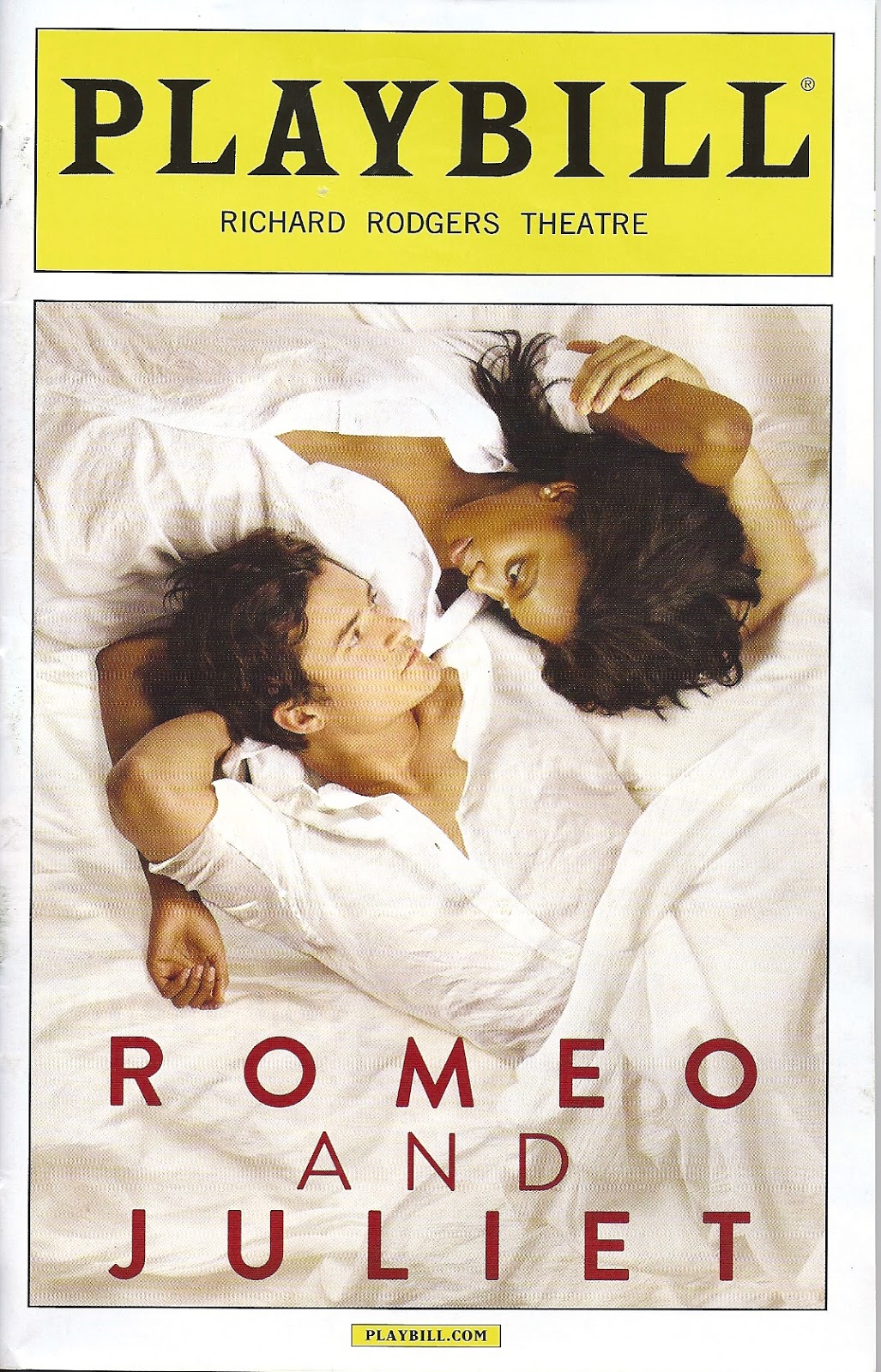
In 2013, following the success of “A Streetcar Named Desire” and “The Trip To Bountiful,” Byrd and Jones-Harvey kicked off “Romeo and Juliet,” featuring a multicultural lineup — an African-American Juliet (Condola Rashad) and a white Romeo (Orlando Bloom). The revival marked the first time in 36 years that the play was produced on Broadway.
What’s next for Front Row Productions?
Breaking out of their established path of producing blockbuster revivals, Front Row Productions is currently working on a new piece that will also be a musical — Black Orpheus. Based on the play by Vinicius de Moraes, which debuted in Rio in 1956, Black Orpheus has become beloved by arbiters of international black culture because of the 1959 film remake it spawned. Byrd and Jones-Harvey plan to take its story of black, star-crossed lovers set in Brazil to the Great White Way through song.
“It was the first play on stage in Brazil to feature black actors and that in itself was a draw for us, that it has that history,” Jones-Harvey told us. “It was an impactful piece and it has never been done as a musical here in the States. We are really excited to bring this iconic love story, set in Rio during Carnival, to Broadway.”
Despite their successes, the pair wishes Broadway was more diverse. “Broadway is an old boys club, a very closed club. Unlike Hollywood, on Broadway if you don’t get a theater, you don’t have a show … you can be all dressed up and nowhere to go,” Byrd said.
Check out opening night of Cat On A Hot Tin Roof in 2008. Look at us. We are SOOOO COOL!
